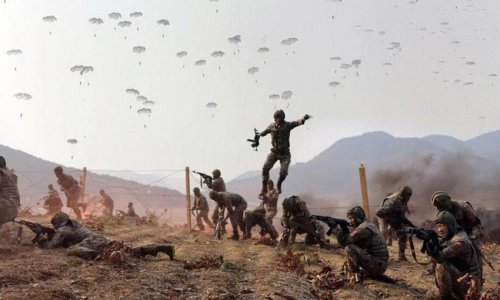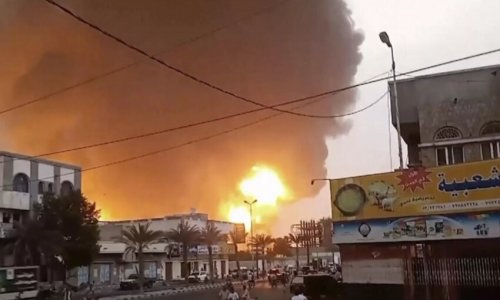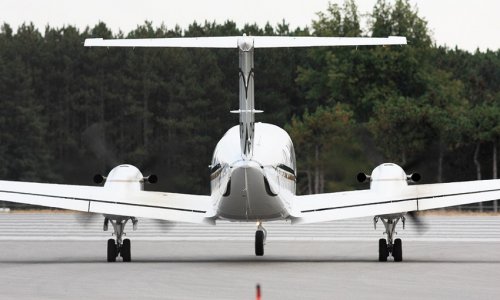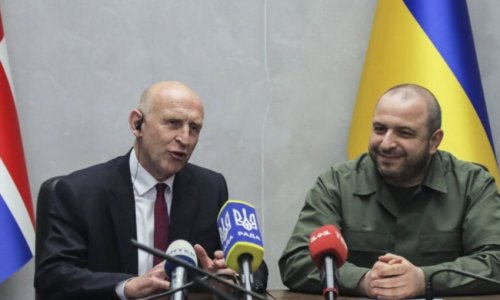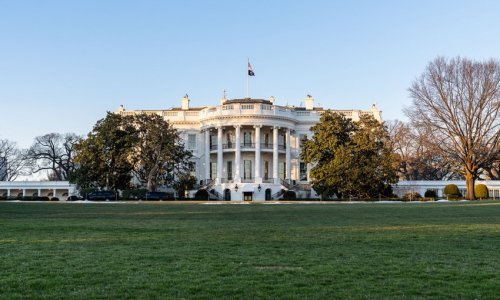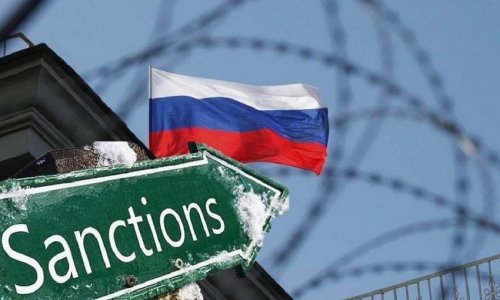Thirty miles from the Ukrainian border there is a garage - a giant sprawling service centre for repairing trucks and lorries.And in a corner of this service centre there is a storeroom. Look inside, and you won't find spare parts for trucks. Today it's packed with humanitarian aid.Two local politicians, Alexei Boiko and Olga Pozdnyakova, are taking boxes of children's shoes from the storeroom. Together with a priest, Father Georgy, and Cossack groups, they're helping to distribute aid to refugees from eastern Ukraine."The aid is being sent from Moscow, St Petersburg, Volgograd, Chelyabinsk, in fact from all over Russia," Alexei tells me. "There are clothes, medicines and food. The scale of the problem is colossal."Children play at tent camp in Rostov region in Russia (22 June)We drive to a border crossing and the pairs of shoes are handed out to families who have crossed over from Ukraine. Russia's Emergency Situations Ministry has pitched large tents here for the refugees.Inside one of the tents I meet Valentina Grigorievna. She's come here with her two granddaughters from Horlivka in Donetsk region.Back in Ukraine she has a sister, further west in the town of Poltava. But she says she can't go and stay with her - they're on different sides of this conflict.Valentina says her sister views everyone in eastern Ukraine now as a terrorist. Her story shows how difficult it will be to reunite Ukraine."On the phone my sister asked me: Where do you get weapons to shoot down planes? But I don't shoot at planes! I spend my days in my allotment growing strawberries."When I visit a hostel an hour's drive from the border, a group of refugees bombards me with terrifying allegations.They claim that masses of Polish snipers have been shooting civilians, that children have been abducted and flown to America to have their organs removed, and that the Ukrainian army has been killing refugees who have been trying to escape.There is no evidence to support any of these wild claims. But what they prove is a deep-seated mistrust of Kiev.At a summer camp down the road I meet Denis and Irina, and their baby Dmitry. Denis is a coal miner from the eastern Ukrainian town of Chervonopartyzansk, very close to the Russian border.His family is utterly confused by what has happened to their town and their country."The Donbass region was calm," Denis tells me. "No one bothered us here… then all of a sudden this crazy situation began. I don't quite know how. It came out of nowhere."Denis and Irina have left their parents behind in Ukraine. They would like to return home once the conflict is over."If our house is still standing, then we'll go back," Irina tells me, "But if all that's left is rubble, then what's the point?"(BBC)Bakudaily.az
The Ukrainian refugees escaping to Russia
World
20:00 | 25.06.2014
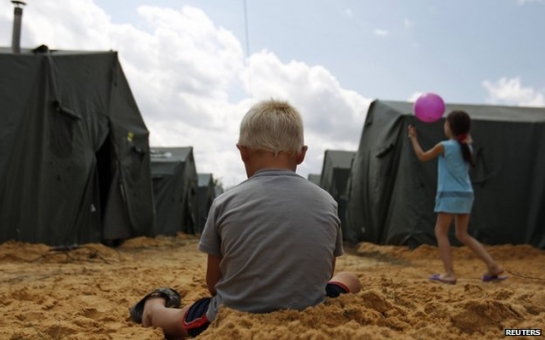
The Ukrainian refugees escaping to Russia
After weeks of violence in eastern Ukraine, Russia's Emergency Situations Ministry says more than 14,000 refugees have crossed the border. Many of them have been given temporary accommodation in hostels, hotels and summer camps.
Follow us !

